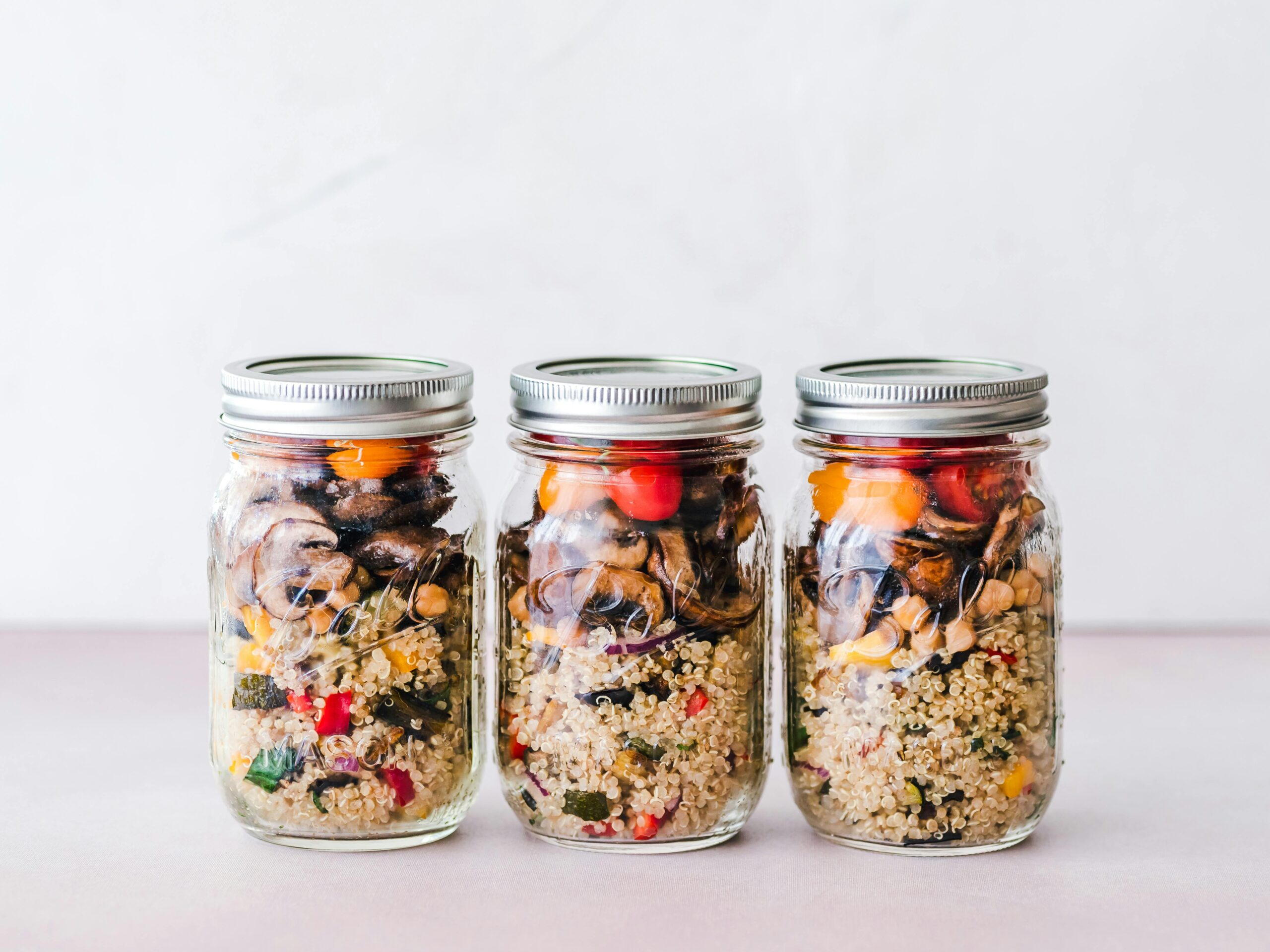When you’re taking a comprehensive approach to fibromyalgia treatment, diet is often a top question on patients’ minds. It’s something that you can often experiment with safely, doesn’t require medications or incur significant side effects, and may help improve fibro symptoms.
But does the evidence support this approach? The connection between diet and fibro has been explored in several recent studies, particularly the impact of gluten on fibromyalgia symptoms.
In this article, we will explore whether fibromyalgia patients should avoid gluten, the current scientific evidence, practical meal planning tips, and some gluten-free recipes to try if you’re thinking about making a dietary change.
What Is Fibromyalgia?
Fibromyalgia is a complex chronic pain syndrome that has a few hallmark symptoms.
- Widespread pain throughout the body
- Chronic fatigue and disturbed sleep
- Cognitive difficulties (also known as fibro fog)
Other less-common symptoms of fibromyalgia include headaches, IBS, numbness or increased sensory sensitivity. See our fibromyalgia symptom checklist here.
In people with fibromyalgia, the central nervous system has adapted the way that it processes pain such that, even after there’s a resolution of an acute injury or trauma, the pain persists. We call this change central sensitization, which is known to underlie most chronic pain conditions. Factors like genetics, infections, physical trauma, and stress are also believed to play a role in its development.
Gluten and Fibromyalgia: Is There a Connection?
Gluten is a protein found in wheat, barley, and rye. For people with celiac disease or non-celiac gluten sensitivity, consuming gluten can cause an immune response that damages the gut lining, leading to digestive issues, inflammation, and systemic discomfort. However, many individuals with fibromyalgia do not have celiac disease but wonder if gluten may exacerbate their symptoms.
Current Research on Gluten and Fibromyalgia
There is some evidence that suggests a gluten-free diet may be beneficial for certain fibromyalgia patients, especially those with co-existing conditions like irritable bowel syndrome (IBS) or gluten sensitivity. Here’s a look at the research:
Gluten Sensitivity and Fibromyalgia Symptoms
Some fibromyalgia patients report feeling better when they eliminate gluten from their diet, though this might be more about gluten sensitivity than fibromyalgia itself. A small study published in the journal Rheumatology International in 2014 found that a subset of people with fibromyalgia reported reduced pain and fatigue after following a gluten-free diet for six weeks. The study suggested that gluten might worsen inflammation and pain in people sensitive to it, although the results were not conclusive enough to recommend a gluten-free diet for all fibromyalgia patients [1].
Celiac Disease and Fibromyalgia
Celiac disease is an autoimmune disorder where gluten triggers an immune response that damages the intestines. Studies have shown that people with fibromyalgia are at an increased risk of having celiac disease. A 2014 study published in Revista Española de Enfermedades Digestiva found that 3-5% of fibromyalgia patients were diagnosed with celiac disease, which is higher than the general population’s prevalence of 1% [2]. Fibromyalgia patients may decide to be tested for celiac disease to rule out the possibility that gluten is contributing to their symptoms.
Improvement in IBS Symptoms
Many fibromyalgia patients also suffer from IBS, a condition that can cause bloating, abdominal pain, and changes in bowel habits. IBS has been linked to gluten sensitivity, and some people with IBS find symptom relief after eliminating gluten from their diets. A study in Alimentary Pharmacology & Therapeutics (2017) showed that a gluten-free diet led to improved IBS symptoms in patients with gluten sensitivity [3]. Since IBS and fibromyalgia frequently overlap, some patients with fibromyalgia may benefit from a gluten-free diet if they also have gluten sensitivity or IBS.
Should People with Fibromyalgia Avoid Gluten?
Despite these findings, there is still no definitive scientific evidence that gluten-free diets can directly treat fibromyalgia. A review published in Nutrients (2022) concluded that while some fibromyalgia patients report improvement on a gluten-free diet, the evidence is insufficient to support it as a standard treatment for the condition [4]. Further large-scale, randomized controlled trials are needed to establish the potential benefits (or lack thereof) of gluten-free diets for fibromyalgia.
If you have fibromyalgia and are wondering, “Should I avoid gluten?” the answer is: it depends. The relationship between fibromyalgia and gluten is not yet fully understood, and while some individuals with fibromyalgia report symptom improvement after eliminating gluten, this is not universally the case; when it is, it may not be a result of the fibro, but another condition.
For fibromyalgia patients who also experience gluten sensitivity or IBS, avoiding gluten may provide relief from digestive discomfort, fatigue, and other symptoms. For those without gluten sensitivity or celiac disease, there is not yet enough evidence to suggest that a gluten-free diet will significantly improve fibromyalgia symptoms.
It’s important to talk to your healthcare provider before making any major dietary changes, especially if you’re considering eliminating gluten. A registered dietitian can also help ensure that your diet remains balanced and nutritious if you choose to go gluten-free.
Find a fibromyalgia specialist at Swing Care. See more on our discussion of diet and fibromyalgia here.
Meal Planning Tips for a Gluten-Free Diet
Dietary changes are very personal, and you might benefit from experimentation to see what works for you. If you do decide to try a gluten-free diet for fibromyalgia to see if you have symptom improvement, try excluding gluten for six weeks, then slowly add it back and track your symptoms to see how you feel.
Here are some practical meal planning tips to get you started:
Focus on Whole Foods
A gluten-free diet doesn’t mean you need to rely on processed gluten-free packaged foods, which can be high in sugar, fat, and preservatives that can also cause inflammation. Instead, focus on whole foods that are naturally gluten-free, such as:
- Fruits and vegetables
- Proteins like chicken, turkey and fish
- Whole gluten-free grains like quinoa, rice and oats (make sure the oats are labeled gluten-free)
- Healthy fats, like avocados, nuts and seeds
Meal Prep for Convenience
Meal prepping can help you stay on track with your gluten-free diet, especially with fibromyalgia. When fibro flares hit, it can be tempting to rely on familiarity, comfort food or packaged food.
To combat that, plan your meals ahead for the week, make large batches, and store them in the fridge or freezer. You may also chop vegetables ahead of time, or buy pre-cooked proteins that are easy to throw into a salad or stir-fry when you have limited time and energy.
Read Food Labels
Many packaged foods, including sauces, dressings, and processed meats, may contain gluten. Look for labels that clearly state “gluten-free” to make sure you’re making the most of your trial run.
Simple Gluten-Free Recipes for Fibromyalgia
Here are a couple of easy recipes to help you get started if you are exploring a gluten-free diet for fibromyalgia:
Herb and Grain Salad
Ingredients
- 1 cup quinoa (rinsed)
- 2 cups water
- 1 cup cherry tomatoes (halved)
- 1 cucumber (diced)
- 1/4 cup red onion (finely chopped)
- 1/4 cup fresh parsley (chopped)
- 2 tbsp olive oil
- 1 tbsp lemon juice
- Salt and pepper to taste
Instructions
- In a saucepan, bring 2 cups of water to a boil. Add the quinoa, reduce heat, and simmer for about 15 minutes, or until the water is absorbed and the quinoa is tender.
- Let the quinoa cool before adding the vegetables and parsley.
- Drizzle with olive oil, lemon juice, and season with salt and pepper.
- Toss everything together and refrigerate until ready to serve.
Chicken and Broccoli Stir-Fry
Ingredients
- 2 chicken breasts (cut into strips)
- 2 tbsp olive oil
- 1 red bell pepper (sliced)
- 1 zucchini (sliced)
- 1 cup broccoli florets
- 2 tbsp tamari (gluten-free soy sauce)
- 1 tsp garlic (minced)
- 1 tsp ginger (grated)
- Salt and pepper to taste
Instructions
- Heat olive oil in a large pan over medium-high heat.
- Add the chicken strips and cook until browned on all sides.
- Add the garlic and ginger, then the vegetables. Stir-fry for 5-7 minutes, or until the vegetables are tender.
- Add tamari sauce, salt, and pepper, and cook for an additional 2-3 minutes.
- Serve immediately, optionally over rice or quinoa.
Summary
The question of whether fibromyalgia patients should avoid gluten remains somewhat murky. While some individuals with fibromyalgia may benefit from a gluten-free diet—especially those with gluten sensitivity or IBS—there is no conclusive evidence that gluten is a direct cause of fibromyalgia symptoms, or that gluten aggravates symptom activity.
However, if you suspect gluten is contributing to your discomfort, eliminating it from your diet for a few weeks may help you assess its impact on your symptoms. There is not a one-size-fits-all approach to diet, so experiment with what works best for your body.
Always consult with your healthcare provider before making any significant dietary changes, and consider working with a registered dietitian to ensure that your diet is well-balanced. If you choose to go gluten-free, focusing on whole, nutrient-rich foods will help you manage your fibromyalgia and optimize your overall well-being.
Sources
- Isasi C, Colmenero I, Casco F, Tejerina E, Fernandez N, Serrano-Vela JI, Castro MJ, Villa LF. Fibromyalgia and non-celiac gluten sensitivity: a description with remission of fibromyalgia. Rheumatol Int. 2014 Nov;34(11):1607-12. doi: 10.1007/s00296-014-2990-6. Epub 2014 Apr 12. PMID: 24728027; PMCID: PMC4209093. https://pmc.ncbi.nlm.nih.gov/articles/PMC4209093/
- Nisihara Renato, Marques AnaPaula, Mei Amanda, Skare Thelma. Celiac disease and fibromyalgia: Is there an association?.Rev Esp Enferm Dig 2015. doi:10.17235/reed.2015.3992/2015 https://www.researchgate.net/publication/287158596_Celiac_disease_and_fibromyalgia_Is_there_an_association
- Algera JP, Magnusson MK, Öhman L, Störsrud S, Simrén M, Törnblom H. Randomised controlled trial: effects of gluten-free diet on symptoms and the gut microenvironment in irritable bowel syndrome. Aliment Pharmacol Ther. 2022 Nov;56(9):1318-1327. doi: 10.1111/apt.17239. Epub 2022 Sep 29. PMID: 36173041; PMCID: PMC9828804. https://pmc.ncbi.nlm.nih.gov/articles/PMC9828804/#:~:text=Results,intervention%20(p%20%3C%200.001).
- Maddox EK, Massoni SC, Hoffart CM, Takata Y. Dietary Effects on Pain Symptoms in Patients with Fibromyalgia Syndrome: Systematic Review and Future Directions. Nutrients. 2023 Jan 31;15(3):716. doi: 10.3390/nu15030716. PMID: 36771421; PMCID: PMC9921865. https://pmc.ncbi.nlm.nih.gov/articles/PMC9921865/












